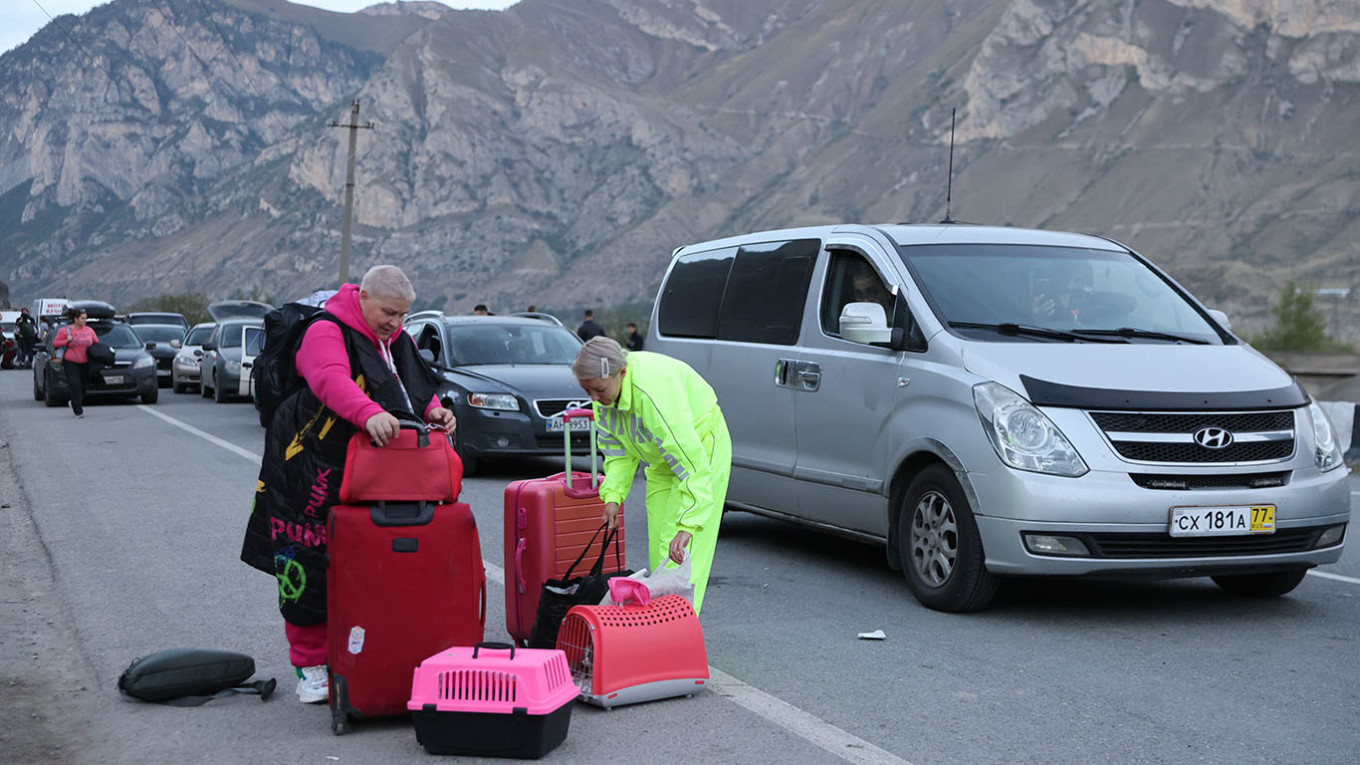The recent news that the Kremlin could establish a database of Russians who have left the country suggests Moscow is strengthening the infrastructure for its repressive network beyond the country's borders.
The proposed database would include all Russians who left the country to “participate in extremist organizations” and study аbroad in “unfriendly states” as a part of Russia’s new anti-extremism strategy.
It would be one thing if “extremist organizations” in Russia meant groups like ISIS or the Taliban. But the provocative label is used willy-nilly to eliminate any and all organizations that Kremlin bureaucrats don’t like.
Sometimes the Kremlin even designates non-existent organizations such as the “international LGBT movement” or “anti-Russian separatist movement” just so that it can crack down on them. One could imagine that partaking in queer activism, say, a pride parade, could then be interpreted as being a part of an extremist group.
These proposed lists highlight the two currents in the Kremlin’s policies. One is a decoupling from the West and Western institutions. Second, it is continuing transnational repression to stifle dissent at home as well as abroad.
The split from the West is easy to explain. The Kremlin has been methodically destroying institutions that for decades enabled the people-to-people communications between Russia and the West, which it routinely proclaims to be its chief adversary. Even before the full-scale invasion, the Kremlin designated Bard College, which ran a fruitful partnership with the St. Petersburg State University since 1997, “undesirable,” which criminalized any association with the organization. More recently, in March, the Kremlin branded the massive U.S. Fulbright fellowship program as “undesirable” as well, placing Russian Fulbright scholars in legal jeopardy.
These moves are forcibly turning Russian youth and intellectuals further away from the West, making person-to-person contact increasingly difficult.
The proposed list of Russian emigres has the potential to become a dark precursor to further surveillance and targeted repression. Russia possesses plenty of influence around the world through its embassies, spies and other networks — all levers of pressure that could benefit from detailed lists of exiles.
Transnational repression is a beloved tactic of regimes all over the world, as it sends a powerful message: that the enemies of the state are never safe. This has a naturally chilling effect on dissidents at home and abroad. China, Saudi Arabia and Belarus are just three states that have hunted their enemies across the world.
The most obvious option the Kremlin uses to pursue its enemies abroad is old-fashioned spycraft. Owing to the legacy of a well-resourced and highly efficient Soviet espionage network, Russia still has the capacity to strike targets in national capitals like Berlin and sleepy towns like Salisbury. Their tactics are deadly, but sometimes unsuccessful. For instance, we know of at least three poisonings of journalists, two in Germany and another in Georgia where the intended victims survived.
Kremlin covert intelligence also includes cyber attacks. Their documented use of Pegasus — an Israeli-produced software beloved by authoritarians of all stripes — is particularly worrying. It has reportedly been used by Azerbaijan and Belarus. There have also been cases from Istanbul and Tbilisi where Russian agents have infiltrated exiled communities.
Then, Moscow can leverage diplomatic pressure through local officials willing to enforce the Kremlin’s wishes. There are known examples of at least three deportations from Vietnam, as well as the deportation and jailing of activists in Kazakhstan and Kyrgyzstan. Local governments in Thailand and the United Arab Emirates came under Kremlin pressure to fine anti-war artists. In Thailand, the Bi-2 band was not only fined but nearly deported to Russia, even though some of the musicians had never even held Russian passports. The botched extradition was brokered by Kremlin representatives in Thailand.
Moscow can officially request that members of its Collective Security Treaty Organization pursue anti-war exiles within their borders. But, interestingly, local policymakers are able to eke out room for maneuvering. For instance, while the Armenian police have detained targeted dissidents, the authorities are seemingly unwilling to put real pressure on activists or extradite them.
Armenia here might serve as an inspiration for some Western nations. Even though the small Caucasian state is geopolitically and economically heavily dependent on the Kremlin, the government is still willing to let Russian exiles live in Armenia. Moscow might have been building a global machine for repression, but even states caught in Russia’s orbit have found ways to resist.
The lesson Western policymakers and the public take from the Kremlin’s relentless drive to punish dissidents outside of its borders should be that the safety of Russian exiles must be a real concern for governments that purport to oppose the Kremlin’s authoritarianism.
By demonstrating to the Kremlin that pro-democracy activists can still find shelter and platform outside of Russia, Western governments would undermine Moscow’s attempts to derail people to carry out its extraterritorial repressions and cut Russia off from the rest of the world.
A Message from The Moscow Times:
Dear readers,
We are facing unprecedented challenges. Russia's Prosecutor General's Office has designated The Moscow Times as an "undesirable" organization, criminalizing our work and putting our staff at risk of prosecution. This follows our earlier unjust labeling as a "foreign agent."
These actions are direct attempts to silence independent journalism in Russia. The authorities claim our work "discredits the decisions of the Russian leadership." We see things differently: we strive to provide accurate, unbiased reporting on Russia.
We, the journalists of The Moscow Times, refuse to be silenced. But to continue our work, we need your help.
Your support, no matter how small, makes a world of difference. If you can, please support us monthly starting from just $2. It's quick to set up, and every contribution makes a significant impact.
By supporting The Moscow Times, you're defending open, independent journalism in the face of repression. Thank you for standing with us.
Remind me later.








